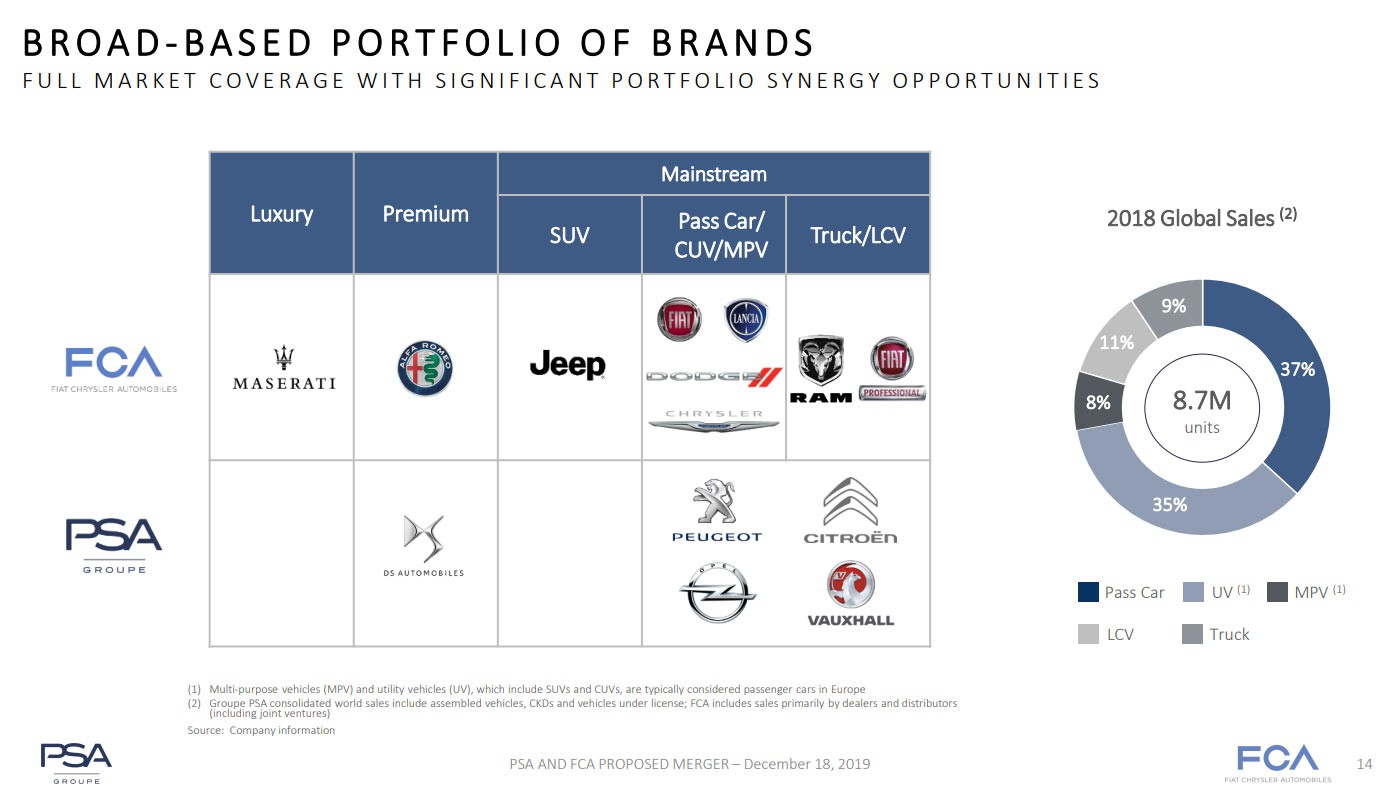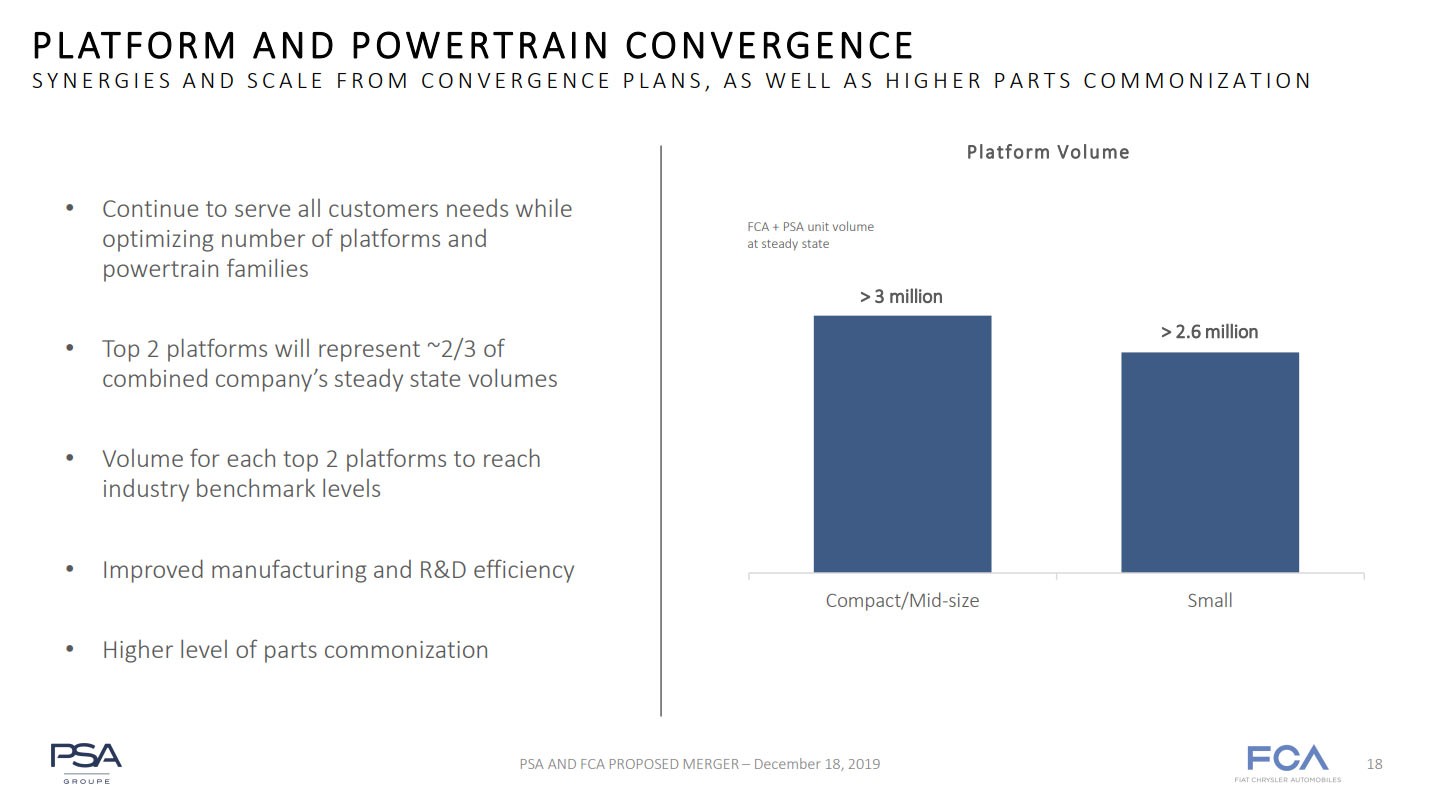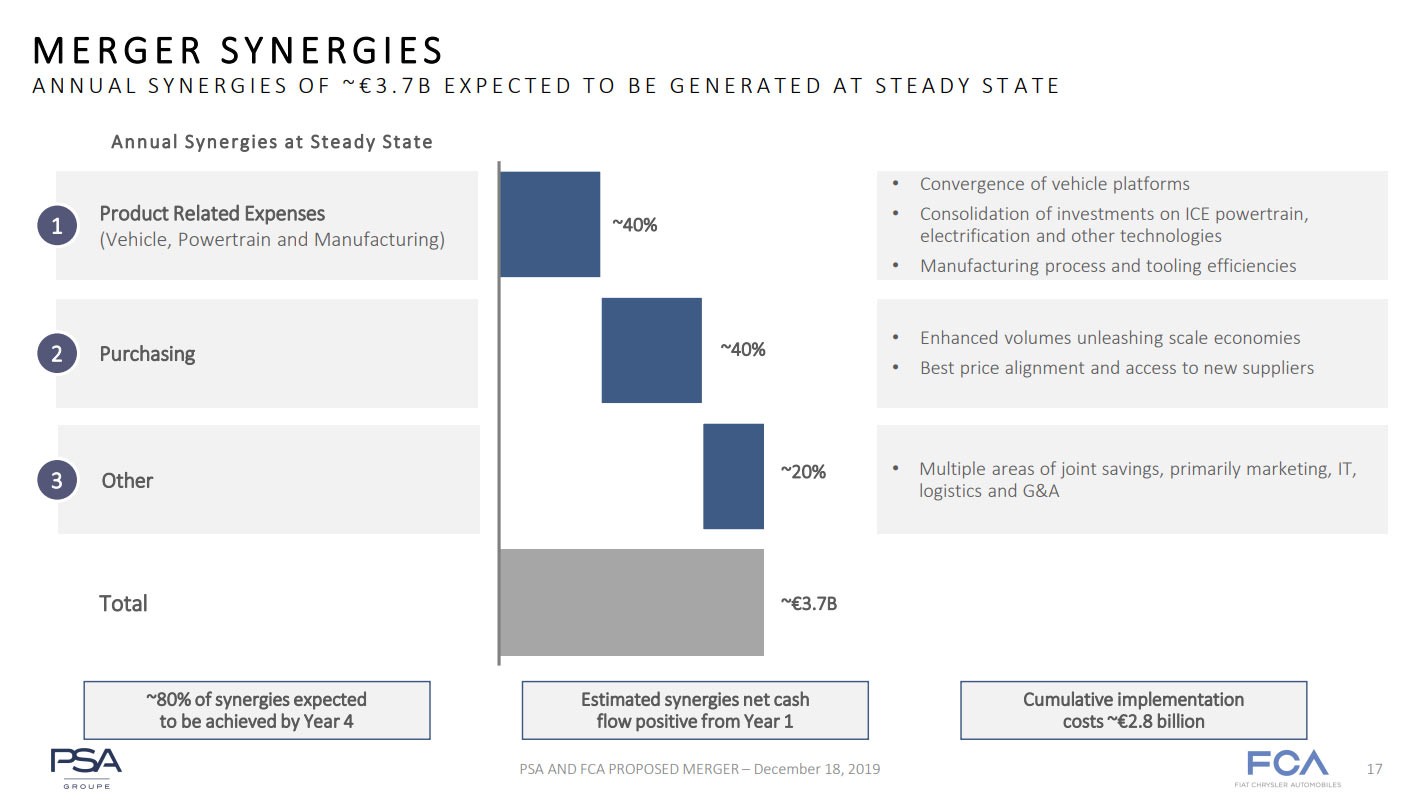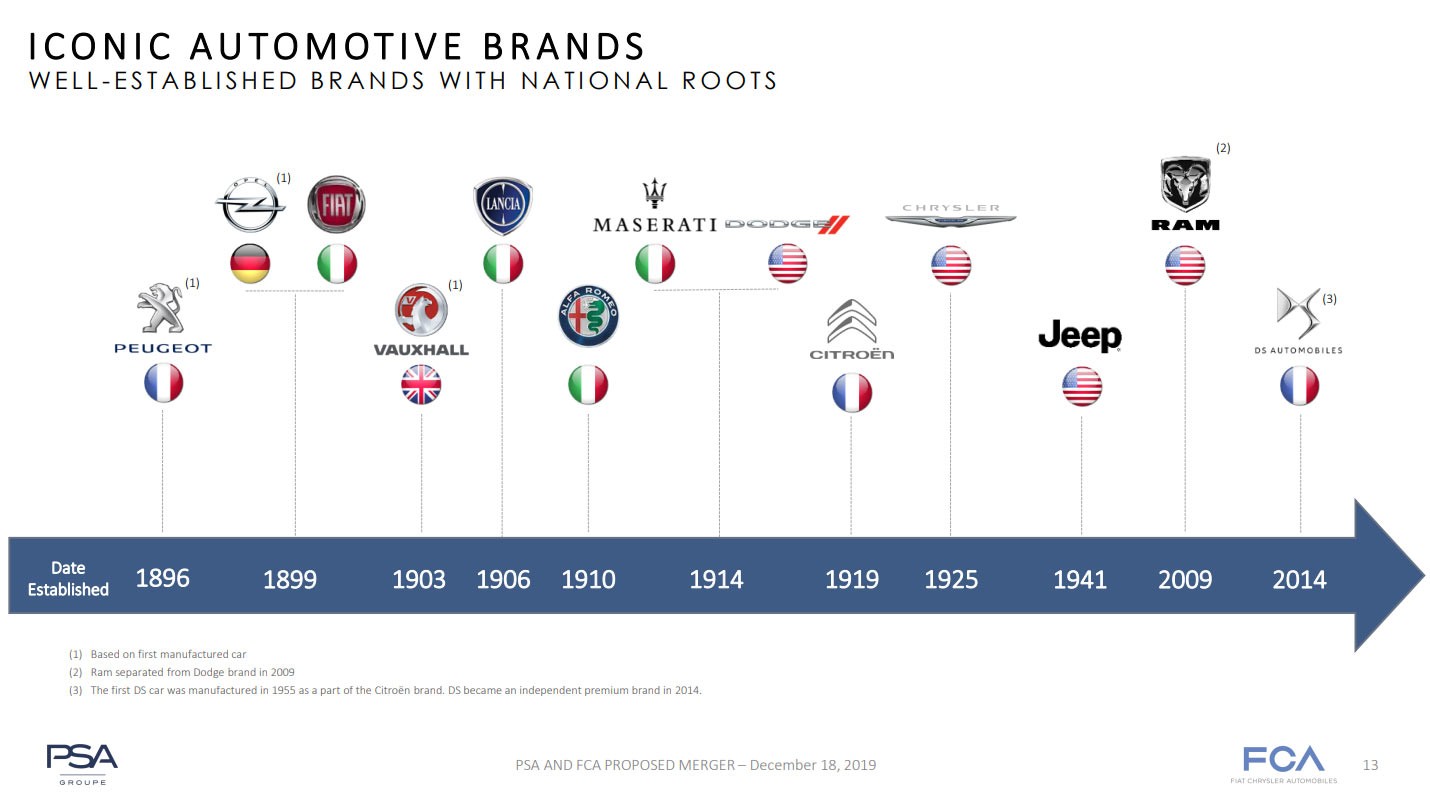The merger of Fiat Chrysler Automobiles and Groupe PSA has raised a lot of questions, but one of the most common is which brands will be cut.
As of right now, it appears all brands are safe as Carlos Tavares – who will become the combined company’s CEO – said “The biggest intangible asset of a car company is the brand portfolio.”
The Detroit Free Press reports Tavares went on to say “The brands carry passion, the brands carry the history and the brands carry the emotions. This is the reason why we consider they will stay in their countries of origin — Italian brands will stay in Italy, French brands will stay in France, American brands will stay in the U.S., and German brands will stay in Germany.”
FCA and PSA echoed this in yesterday’s announcement as they said the combined business entity will have a “broad portfolio of well-established [and] iconic brands offering best-in-class products covering key vehicle market segments and delivering higher customer satisfaction.” The automakers added they have a complementary brand portfolio which covers luxury, premium and mainstream segments with everything from passenger cars to commercial vehicles.
Also Read: FCA And PSA Boards Sign Off On $50 Billion Merger
While FCA is heavily reliant on the United States, the companies said the merger will provide a “much greater geographic balance” as approximately 46% of revenues will be come from Europe while another 43% will come from North America.
The two companies have little product overlap, but Fiat has a significant presence in Europe and Lancia is still clinging to life. Tavares’ statement suggests both brands will survive, but it’s easy to question Lancia’s future as the brand only has one model and the combined FCA-PSA will have six other Euro-focused brands.
On the bright side, another struggling FCA brand could benefit from the partnership. Autoline host John McElroy suggested PSA could ditch their plan to return to the United States and instead sell some of their models under the Chrysler brand. That remains to be seen, but it could be a more economical way to bring PSA models to America while also helping to revitalize Chrysler.
Even if this doesn’t happen, future FCA and PSA models will have plenty in common as two companies intend to share platforms and powertrain technologies.








